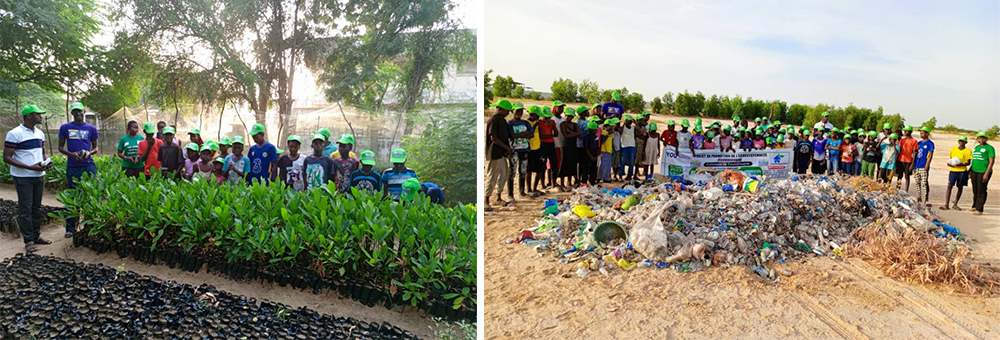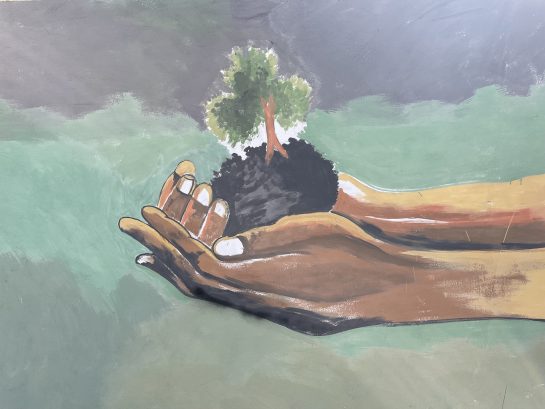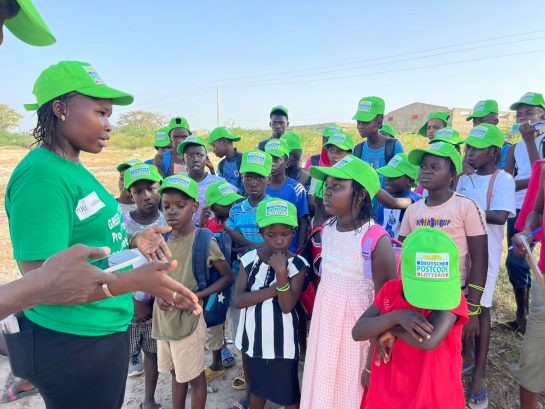PROMOTING ENVIRONMENTAL AWARENESS AND SOCIAL RESPONSIBILITY
The community of Foundiougne in western Senegal is a fast-growing commercial center. With good infrastructure and services, the town has economic potential and the population is growing. An already well-established education system is attended by a large number of students, and this is the starting point of this project.
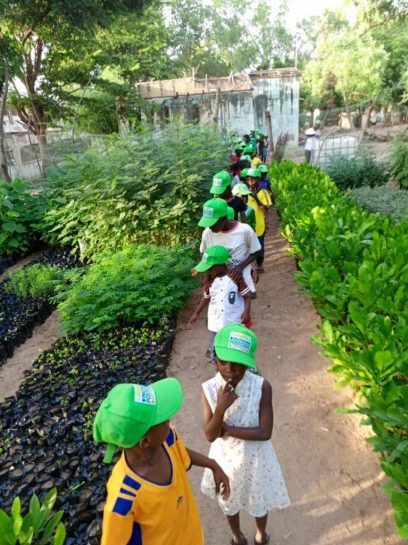
Increasingly, the community is facing the challenges of climate change. Its ecosystems are severely threatened by destruction of land, lack of hygiene awareness and an increase in plastic waste. There is an urgent need to promote social change and, in particular, environmental protection by creating awareness of nature and the use of natural resources.
The aim of the project is to qualitatively promote, especially among children and young people, the development of positive attitudes, skills and responsibilities for the protection and preservation of the environment.
As part of the project, “Environmental Education” was integrated into the curriculum in four pilot schools:
- Training of teachers in knowledge about nature and the environment,
- Preparing teaching materials as a guide for teachers – these materials will be made available to the school boards at a national level so that all schools can access it,
- Publicizing the environmental project,
- Establishing school gardens for teaching and for self-sufficiency,
- Teaching units on the topics of cultivation, raising and harvesting, the importance of plants for the habitat, identification of animal and plant species, and
- Planning and carrying out activities for re-vegetation and design of public areas.
Students, parents, and the general public are involved by encouraging commitment to cleaning up, sorting, and properly disposing of trash. The participatory approach involves the entire community and encourages self-responsibility.
The construction of a nursery, for training purposes and for planting, is also part of the scope of the project work.
Overall, the different initiatives have already led to a change in behavior in dealing with nature and in waste disposal and environmental awareness has increased tremendously.
The students have changed their traditional, climate-damaging waste disposal behavior in concrete terms and sweep, clean, sort and dispose of waste in an environmentally friendly manner.
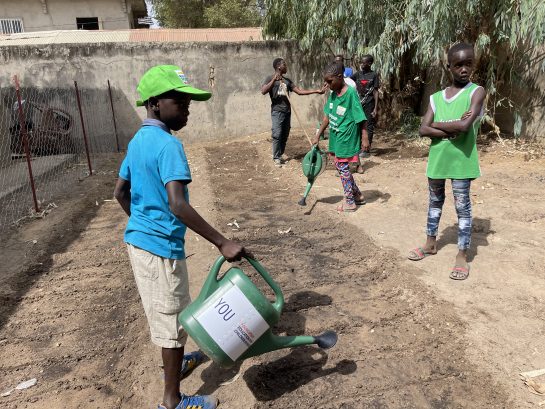
The surroundings of schools was landscaped and with over 350 trees were planted and graffiti projects were realized to promote education.
Students regularly participate in the maintenance of school yards and facilities. The school was greenified and the infrastructure was repaired.
An environmental education club was established and students were trained in recycling. A botanical garden was created and is managed by trained students.
To ensure acceptance and ownership of the project in the community, the first step was to bring together all those who are committed to the environment through the association’s activities. Therefore, in addition to government agencies, community organizations, parent associations, sports and cultural associations were recruited to work together to protect the environment and natural resources that form the basis for sustainable economic and community development solutions. This joint project leads to a strong cohesion between the individual stakeholders, which has so far been demonstrated not only in the achievement of the project mission, but also in the appreciative communication beyond the project duration.
The project will continue long-term to ensure future investment in the local economy and improved health across projects. Through this pilot project, the community will continue to positively counteract the negative environmental impact of urbanization, population growth, and economic expansion. Children and teachers will become “opportunity agents” to bring about effective, lasting behavior change. In-service training and expanded curricula also contribute to the long-term sustainability of the project. In the long term, this project can also have an influence on other communities and a transfer of know-how can take place.




